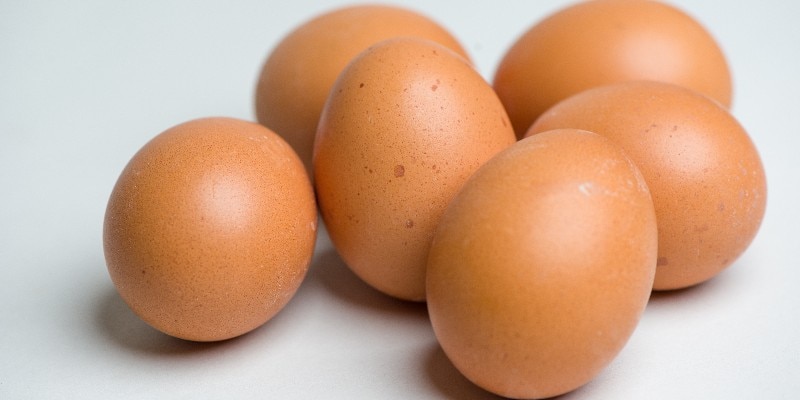by Melissa Chichester
With so many types on the market, you might be wondering what protein supplement is the best fit for you. Proteins are building blocks of cells and tissues and important for the growth and development of bone, muscles, cartilage, and more.
From whey to pea protein, there is something for everyone! Protein supplements come in the form of powders. In these powders, protein from different sources has been extracted and concentrated. Sometimes these powders contain other nutrients as well, such as vitamins and minerals. For example, you may find a protein powder that contains added calcium to support bone health.*
Here are seven types of protein supplements that will fit many lifestyles.
Whey is one of the most popular types of protein powder. Athletes, especially power athletes like bodybuilders, use whey protein to support their workout and fitness goals. Whey protein digests quickly. Protein in general can help you feel full longer.
Whey is a natural by-product of milk. It contains strength-building protein, which plays a role in optimal nutrition.* Myology Whey Protein Isolate in Deluxe Chocolate contains 30 grams of protein per serving and branched-chain amino acids (BCAAs), which are important components of muscle tissue.*
Whey also naturally contains immunoglobulins and lactoferrin, two natural compounds that support overall health.*
If 30 grams of protein is too much for your daily supplement, the Puritan’s Pride Daily Nutrition Shake is fortified with other vitamins and minerals and contains 15 grams of protein. It also contains Vitamin B-12 for energy support and fiber and probiotics for digestive support.* If you aren’t an athlete but want a simple and supportive way to get extra protein in your diet, this is a great choice that contains both whey and soy protein.
>>12 Fitness Supplements that Really Work
Are you vegan or do you have sensitivities to dairy and eggs? If so, pea protein is a good supplement choice.
Made from the yellow split pea, this kind of protein contains all but one of the essential amino acids (methionine).
Like whey, pea protein is rich in BCAAs. Peas are well-known for being a highly bioavailable protein and can contain as much protein in one serving as whey. Pea protein powder is made by grounding yellow peas into a powder. The starches are removed, leaving the vitamins and minerals behind. If you avoid dairy or soy or find whey protein to cause digestive discomfort, give pea protein a try!

The PDCAAS, or “protein digestibility-corrected amino acid score,” is a test that evaluates protein quality on digestibility and amino acid count. Eggs are one of the highest-scoring whole foods based on this test.
Eggs are considered a nearly perfect source of protein because of its abundant amino acid profile.
Eggs are a complete protein, meaning they provide all nine of the essential amino acids your body can’t make.
Egg protein is the second-highest source of leucine, the BCAA that plays the largest role in muscle health.
If you have dairy allergies but prefer an animal-based protein, egg protein powder is a good choice (or should we say an egg-cellent choice?).
>>Shop all protein supplements
Another good protein supplement for vegetarians and those with dairy sensitivities is soy protein. If you are not looking to build muscle but simply want to support protein intake, consider soy as an option.
Most plant-based proteins do not contain all of the essential amino acids your body cannot make, but soy does, meaning it is a complete protein. Soy protein contains little fat and no cholesterol, making it a good choice to consider if you are on a low-cholesterol diet.
>>Shop all amino acid supplements
Another protein option for vegetarians and those with dairy sensitivities is brown rice protein. Protein powders made from brown rice are typically not used for building muscle. Brown rice protein is not a complete protein because it is too low in amino acid lysine.
Brown rice protein is easily digestible.
Another perk to brown rice protein is that it has a very mild taste. If you are simply looking to increase protein intake with a vegetarian source, check out brown rice protein!
Hemp protein has one characteristic that sets itself apart from other plant-based proteins: it contains omega-3 fatty acids. Although not a complete protein because it is low in amino acids lysine and leucine, it is easily digestible and suitable for people with dairy sensitivities.
>>Peanut Butter Dusted Chocolate Protein Puffs
Another protein supplement option is mixed plant proteins. A combination of plants works to deliver all of the essential amino acids that your muscles need. Mixed plant proteins may include protein from several sources, such as peas, brown rice, hemp, chia seeds, alfalfa, and artichoke.
If your diet is already rich in protein, you may not need to supplement with protein powder. Your healthcare practitioner can check the protein in your body with a simple blood test to get a snapshot of your levels. Many factors can influence your protein levels, from pregnancy to medication.